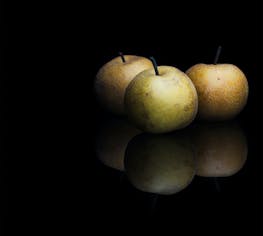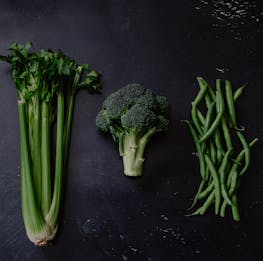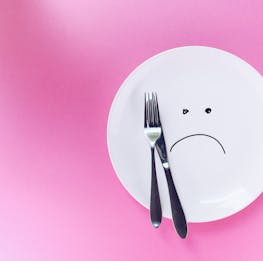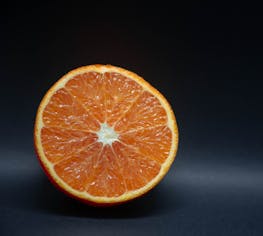Fiber Fueled Summary
The Plant-Based Gut Health Program for Losing Weight, Restoring Your Health, and Optimizing Your Microbiome
Having a gut feeling shouldn't just be an emotional response.
Dr. B's book Fiber Fueled, shows us that fiber is the basis of good health, and he gives us practical and, yes, "easy-to-digest" science on the gut. Fiber Fueled explains why fiber matters, and how best to incorporate fiber fueled plants, and fermented foods into our diets.
Dr. B is a renowned gastroenterologist, and through years of research and experience, he maintains that optimal health relies on a healthy gut. And, the solution that he offers is simple; eat more fiber.
Dr. Will Bulsiewicz, or "Dr. B" for short, offers key insights into how gut health is essential to weight management, overall health, and general well-being. Dr. B has got your back, or in this case, he's got your gut. He explains that our energy isn't just generated from what we eat, but from what we absorb. So, if the gut isn't working efficiently, we're not getting the necessary nutrients to our cells. Research shows that gut health has a significant impact on mood, energy levels, and immunity.
This brief summary will guide us through Dr. B's 28-day "kick-start program," which helps us benefit from a diverse plant-based diet. The diet he proposes is high in fiber, and will restore and maintain a healthy gut. As you know, it's often difficult to start these processes and to adopt a shift in lifestyle, so Fiber Fueled is an excellent handbook to set you on the way.
Signs of Poor Gut Health
There are many side effects of having poor gut health. A relatively common condition is "leaky gut." This is a condition where small pieces of food penetrate the intestinal wall, and enter the bloodstream. They certainly don't belong there. This infiltration triggers a cascade of events - all of which are bad news for us.
When food particles and other substances are absorbed incorrectly, our immune systems go into high alert, and attack them as pathogens. This immune response, creates inflammation in the bloodstream, which then moves through the body. It causes digestive distress such as bloating, heartburn, and diarrhea. Interestingly, the most common area for poor gut health symptoms involves the brain. Insomnia, brain fog, or poor memory can be signs of a poorly functioning digestive system.
Many of us may try very hard to be healthy, and opt for healthier options for what we eat. However, if the gut isn't happy, essential nutrients can't get to our cells, and we continue to feel tired and unwell.
The good news is that medical health breakthroughs are continuously providing us with new information to help restore and optimize gut function. When it comes to learning about our digestive health, and the little creatures living in our guts known as microbes, knowledge is expanding.
What Are Microbes and How Do They Impact Gut Health?
How many of these little engine-drivers, or microbes, do you think that you have in your digestive system? Dr. B says that there are an astonishing thirty-nine trillion micro-organisms that take up residence in our colons. It's difficult to conceptualize a number this enormous. So, imagine looking up at a clear night sky, and seeing every star in the Milky Way. Then take the number of stars you can see, and multiply this by a hundred - that's roughly how many micro-organisms live in your colon.
What's even more mind-blowing is that the number of microbes far exceeds the number of cells in the human body. So, if you think about it, we're 90% bacteria, and only 10% human.
The thought of bacteria often triggers negativity. But, the truth is that bacteria are often what makes us the most healthy. When in balance, the bacteria in our bodies have incredible healing power. They help digestion, and strengthen our immune system. On the other hand, when your gut biome is unbalanced, this can cause weight gain, and increased blood sugar and cholesterol levels.
What Causes Gut Imbalance?
When it comes to gut imbalance, there are two main culprits; medication and poor diet.
Did you know that three out of five Americans take prescription drugs? The problem is that these medications often wreak havoc on gut microbes. Medication frequently wipes them out, even the good ones. After a single course of antibiotics, our gut takes approximately four weeks to return to its pretreatment state. And most antibiotics only treat symptoms and not the underlying causes of the illness. Dr. B says that we're a hyper-medicated civilization that relies on a system that focuses on sick-care, not healthcare.
The second culprit is our increasingly poor diets. Dr. B says that the way we eat, can be harmful to our gut and overall health. Many of us could be in a situation where we may eat enough, but our healthy microbes could be starving. According to the U.S. Department of Agriculture, approximately 32% of our calorie intake comes from animal foods, 57% from processed plant foods, and only 11% from whole grains, fruits, vegetables, and nuts.
Diets that are high in animal protein and processed foods, tend to feed the inflammatory-producing bacteria, while starving the good, health-promoting bacteria. Furthermore, high animal protein intake is associated with an increase in inflammatory microbes. Studies show that L-carnitine, found in red meat, egg yolk, and dairy products, causes gut bacteria that can increase the risk of Alzheimer's, strokes, and heart disease.
We should all know that processed foods such as white bread, rice, pasta, and sugar-laden cereals, are highly refined and low in fiber. One of the significant problems with this is that they're rapidly absorbed into the small intestine, instead of being slowly digested. This quick absorption reduces our gut microbial diversity. Inflammatory bacteria thrive on the sugar that's produced from simple carbohydrates.
What's encouraging is that plant protein, fuels anti-inflammatory microbes and suppresses the destructive microbes. This bonus helps us to ward off many diseases. The need to nourish our healthy gut microbes is paramount.
And here's the thing, you've probably heard of probiotics, but have you heard anything about prebiotics?
What are Probiotics and Prebiotics?
Probiotics are our healthy gut bacteria, and prebiotics are the foods that enable them to thrive. Here is where Dr. B's favorite F-word comes in. The F-word is Fiber. Fiber is a prebiotic, and it's absolutely essential.
There's a lot of misconception around fiber and high-fiber diets. For many of us, when we think about fiber, we think of foods that resemble cardboard and cereals that are difficult to swallow. Many of us might remember women in advertising, rubbing their stomachs, advocating for a miracle product bound to keep us all "regular." But, fiber does so much more than just passing through us, and cleaning out our systems.
The role of fiber in gut health is diverse, and we shouldn't neglect it. Unsurprisingly, plants have a total monopoly on this nutrient. Fiber is part of a plant's cellular structure. If you want to get fiber naturally, the only way to do it, is via plants.
What's also important is realizing the difference between soluble and insoluble fiber. Insoluble fiber is the roughage that passes through our mouths, down to the gut. Along the way, insoluble fiber cleans things up and finally comes out the other end. Soluble fiber is different, and from a nutritional standpoint, it's a complex carbohydrate. Complex carbohydrates remain unchanged as they pass from our mouths to our stomachs, and even down the fifteen to twenty feet of your small intestine.
By the time soluble fiber reaches our colons, it still has the same molecular structure as when it went into our mouths. So, once in the colon, the healthy bacteria metabolize the fiber. This stage is when the magic happens.
What are Short-Chain Fatty Acids and Why Do We Need Them?
The breakdown of fiber by gut bacteria unleashes what Dr. B regards as the most healing nutrient in nature: short-chain fatty acids. Dr. B can't say enough good things about the magic of fatty acids, and he admits his interest in them often borders on obsession. Science now shows that short-chain fatty acids are the dominant drivers of gut health, and benefit the entire body.
The name describes them well. They're short-chain, chemical compounds made up of two, three, or four carbon atoms connected in different variations. This description may sound a bit complicated, but they're the dominant energy source for our colon.
They also help healthy microbes grow, they repair the leaky gut, and they're vital regarding reducing the release of bad bacteria and harmful toxins into our systems. In short, they're the superheroes that ease gut dysbiosis. They reduce gas, bloating, and irritable bowel syndrome. Furthermore, they help regulate the immune system, prevent cancer, heart disease, strokes, and Type 2 diabetes.
But, as with all things there's a bit of a catch. To get the benefits of short-chain fatty acids, we need to eat more prebiotics, and thus more fiber. To do that, we need to ramp up our plant consumption.
Ramping up our plant consumption may be met with a bit of an eye-roll. Mainly at the thought of eating countless kale leaves. The key to this approach is realizing the importance of variety, and having an open mind about plants. One of the most extensive studies on microbes, published by Dr. Knight in 2017, shows that the single most significant predictor of a healthy gut microbiome, is incorporating a diverse range of plants into our diets.
Research suggests that we should be eating up to thirty different plants per week, to support a healthy microbiome. The good news is that every plant type we introduce into our diet, provides a unique microbe community, that helps our gut thrive. So the more varied our plant intake is, the more diverse our microbiomes become.
Our food worlds can open up significantly, if we learn to appreciate and explore the wide variety of plant ingredients available. Dr. B says that, there are over three hundred thousand edible plants on the planet. However, most Americans don't eat more than twenty-five. Think about what you could be missing out on? The key idea is that plant diversity in our menu, should be part of our planning every time we eat, and this is where Dr. B's diet plan comes in. He provides comprehensive information, along with a four-week diet plan to get us all fiber fueled.
Let's explore his strategy.
How To Begin Your Journey to Good Gut Health
An easy way to incorporate plants into our diets is to remember the acronym, F-GOALS. This acronym stands for fruits and fermented foods, greens and grains, omega-rich nuts and seeds, aromatics, legumes, and sulforaphane.
Fruit and Fermented Foods
Remember that adage about apples and doctors? Well, Dr. B, recommends more than just a single apple a day.
A study from Cornell University shows that eating combinations of fruit, results in increased antioxidant activity in the body. Berries are incredibly nutrient-rich, and one study shows that eating two servings of berries per week, can reduce Parkinson's disease by 23%.
And as with most things, don't take shortcuts. All of those juice fads you read about, will never match the benefits of eating the whole fruit. For example, one orange contains 45 calories, 2.5 grams of fiber, and 9 grams of sugar. Orange juice, on the other hand, contains 134 calories, 0.5 grams of fiber, and 23.3 grams of sugar. So orange juice contains more than double the calories and sugar of a whole orange, without the fiber.
You may have noticed, there's been a massive resurgence in the popularity of fermented foods. This is one fad that should become a lifestyle. Fermented foods are rich in healthy bacteria, or probiotics. Almost every culture on earth, has fermented foods as part of their food tradition because it's an excellent preservation method.
This abundance of options is good news when you're looking for fermented foods in your local grocery store. Be adventurous with experimenting with these ingredients. Dr. B's suggestion for an afternoon energy boost is to replace coffee with a cup of miso. Miso is a fermented soybean paste with a salty flavor. It's packed with calcium to promote healthy bones and can ward off cancer.
Greens and Grains
We all know that greens are excellent for our health; Popeye and the Jolly Green Giant have been touting their benefits for years. The trouble with greens, is that they can have a bad reputation with regards to taste. This reputation may have a lot to do with us generally eating over boiled greens.
There's so much diversity when it comes to eating, and preparing, our daily greens. Even the leaves of some root veggies like beetroot, turnip, radish, and carrots are edible. Popeye was right about spinach. Eating one cup of spinach offers 36% of our daily iron intake, 11% of our daily protein, 4 grams of fiber, and a host of vitamins and minerals.
When it comes to grains, it's pretty intuitive. Drop the refined stuff, such as white rice and highly processed bread, but don't be carb-phobic. Dr. B says that if you want a healthy gut, whole grains are essential.
To back this up, Dr. B provides numerous studies. One particular ten-year study of dietary patterns examined 37 different food groups and showed that whole grain consumption had the most potent anti-inflammatory effect on the body. Those consuming whole grains saw their inflammation measure, the C-reactive protein, drop by 21%. Those who eliminated whole grains saw theirs increase by 12%. The evidence is clear; whole grains are anti-inflammatory, so it's time to end the war on carbs and enjoy that slice of freshly baked sourdough.
Omega-3
The most efficient way to get more Omega-3 is by incorporating more seeds into your diet. Dr. B suggests adding flaxseed, chia seeds, and hemp seeds to your daily diet. The great thing about seeds is that they're easy to incorporate into salad dressings, porridge, or just as a sprinkling to add texture.
Aromatics
Foods such as onions, leeks, and garlic do more than ward off vampires. Aromatics such as these contain an enzyme called allianase, which is anti-viral, anti-fungal, and anti-parasitic. But, to activate this enzyme, we need to pause after chopping these vegetables. Dr. B calls this the "Chop and Stop" method. Chop up your garlic or onion, then wait 10 minutes before adding it to the frying pan.
Legumes
Legumes are packed with fiber. Even your typical green peas are full of fiber; a cup of peas has 7 grams of fiber. Lentils contain a whopping 16 grams, so why not combine various legumes with a whole grain like brown rice? In this way, you can create a complete protein.
Sulforaphane
It sounds like a bit of a mouthful, but studies show that this compound creates healthy microbes and restores harmony to the gut. But, what's sulforaphane, and where can you find it? Sulforaphane is unique to the cruciferous family of vegetables, such as broccoli, Brussels sprouts, and cabbage.
In Conclusion
When you think of the F word, it's time to start thinking about fiber. Dr. B offers us the science behind why fiber and gut health are both the way towards a healthier lifestyle, but he also gives us a solid plan to follow to reach optimum health.
And yes, transitioning to a plant-based diet may admittedly be challenging to start. There may also be some unwanted side effects, associated with upping beans and cruciferous veggies, such as gas and bloating. Dr. B's advice is to start low and go slow. Begin the process by slowly adding small quantities of fiber to your diet, so the gut can adapt to processing this efficiently.
Dr. B argues that we're only as healthy as our guts, and often we neglect just how important they're to overall health and wellness. To support the gut, we need to look after our microbes. We also need to be aware of the adverse effects that medication and poor diet can cause. Although it may seem prescriptive, following a plant-based diet is all about variety. So embrace diversity, consume a high-fiber plant-based diet that includes an abundance of vegetables, fruit, nuts, seeds, and whole grains.




